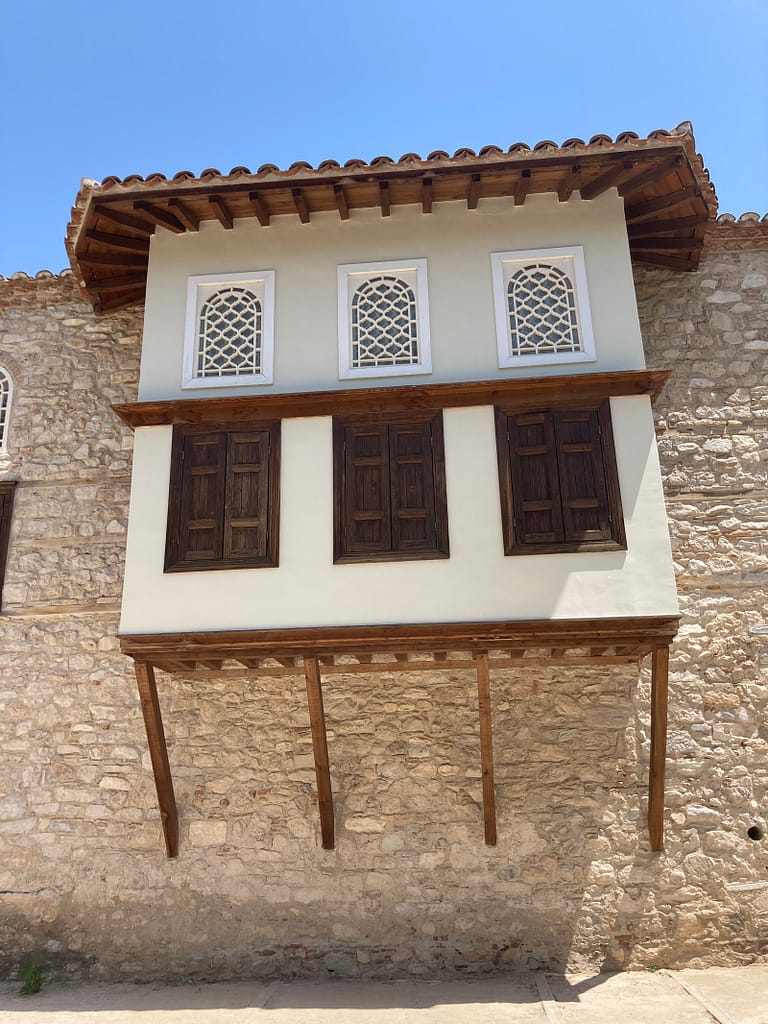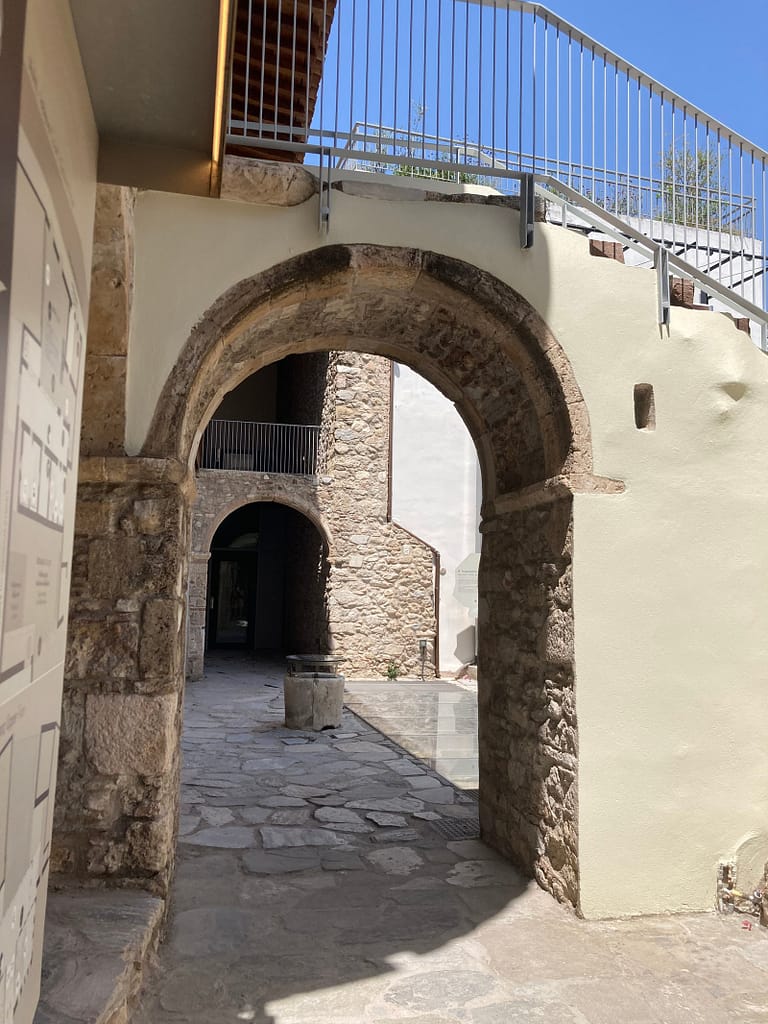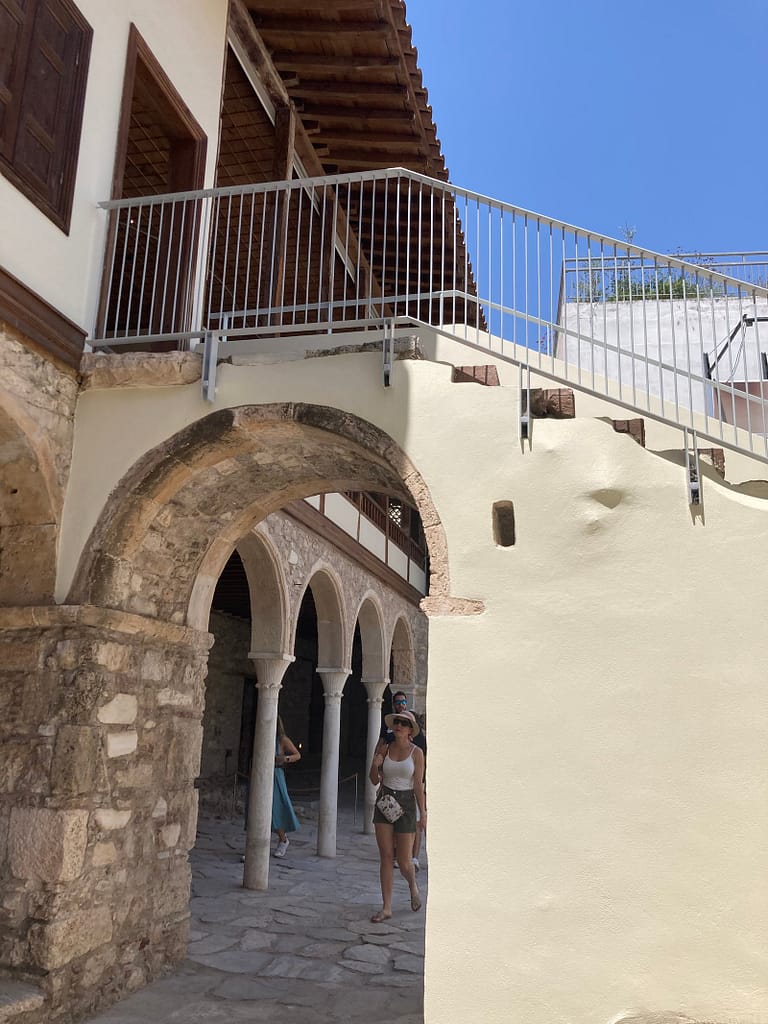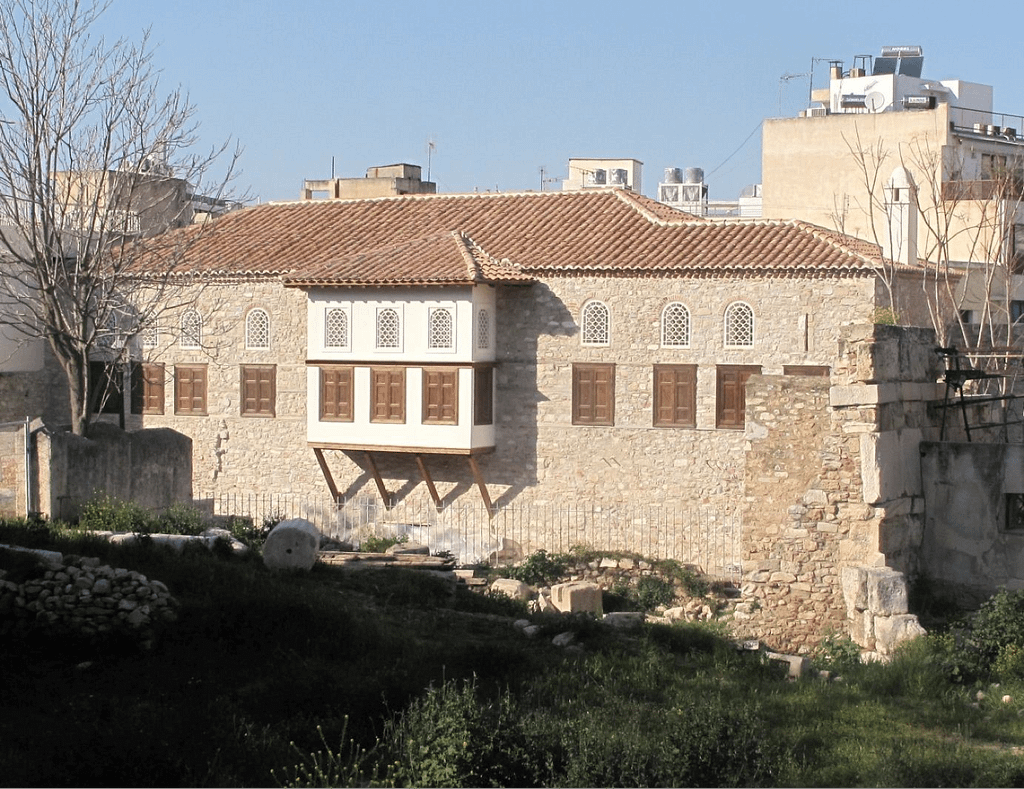As you stroll around Plaka in the heart of Athens, make sure to stop at The Benizelos Mansion and explore the beautifully renovated mansion. It also happens to be the last surviving konaki-style mansion in Athens, which was typical of the Ottoman era. Explore the mansion and delve into its rich history and architectural evolutions.
Exploring the Illustrious Benizelos Lineage
The Benizelos family, hailing from one of the oldest and most esteemed noble lineages of Athens, traces its roots back to the vibrant tapestry of Ottoman-era Greece. Over the centuries, generations of Benizelos descendants distinguished themselves as pillars of Athenian society, assuming roles as elders, notaries, men of letters, and educators. Among their esteemed ranks were luminaries such as Angelos Benizelos, a revered intellectual and esteemed member of the Greek Confraternity of Venice, and Ioannis Benizelos, whose seminal work, the “History of Athens,” offered unparalleled insights into the city’s storied past.
Discovering the Benizelos Mansion
The Benizelos Mansion stands as a testament to the family’s enduring legacy, embodying the pinnacle of Ottoman-era architectural splendor. Constructed in the first half of the 18th century, this iconic edifice served as both a sanctuary of prestige and a bastion of familial pride for the esteemed Benizelos clan. From its imposing stone-built façade to its meticulously crafted timber superstructure, every facet of the mansion exudes an aura of aristocratic opulence, reflecting the family’s status as stalwarts of Athenian nobility.
Unravel the secrets of this historic estate, where each corner resonates with echoes of the past.
Unraveling the Saintly Connection
Central to the legacy of the Benizelos family is their ancestral ties to Agia Filothei, also known as Saint Philothei, a revered figure renowned for her unwavering devotion to philanthropy and social welfare. Legend has it that Saint Philothei resided within the confines of the Benizelos Mansion, where her altruistic endeavors left an indelible mark on the local community. From founding the convent of St. Andrew to providing refuge to the marginalized and oppressed, her legacy continues to inspire reverence and admiration to this day.
Architectural Evolution: From Konaki to Neoclassical Splendor
The Benizelos Mansion epitomizes the evolution of architectural styles spanning centuries of Athenian history. Initially constructed in the konaki style prevalent during the Ottoman era, which was typically characterized by its labyrinthine compound layout, with the upper floor primarily constructed of timber. Stone walls would enclose two or three sides of the building, creating a sense of security and privacy. The konaki often featured a central courtyard, known as a hayiati, which provided outdoor living space shielded from public view. These houses served as residences for the social elite regardless of their religious or national affiliations.
The mansion underwent significant modifications over the years, reflecting the changing tastes and preferences of its inhabitants. From the addition of Neoclassical elements in the late 19th century to the transformation of its interior layout, each architectural iteration speaks volumes about the mansion’s dynamic evolution through time.
Restoration: Preserving the Legacy for Future Generations




In recent years, concerted efforts have been made to preserve and restore the Benizelos Mansion to its former glory. Through meticulous research and restoration work, the mansion has been painstakingly revitalized, ensuring that its architectural splendor endures as a beacon of cultural heritage for generations to come. Today, visitors are invited to explore this architectural marvel, where every corner resonates with echoes of the past, offering a glimpse into the illustrious history of the Benizelos family and their cherished ancestral home.
Conclusion
As we reflect on the rich tapestry of history woven into the fabric of the Benizelos Mansion, we are reminded of the enduring legacy of a family whose contributions have left an indelible mark on the cultural landscape of Athens
Where: Andrianou 96, Plaka
General Admission: Free
Opening Hours: Tuesday – Thursday 10:00 – 13:00/ Sunday 11:00 – 16:00
More information here https://archontiko-mpenizelon.gr/en/




